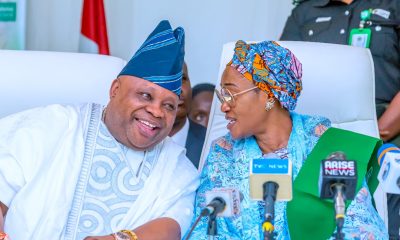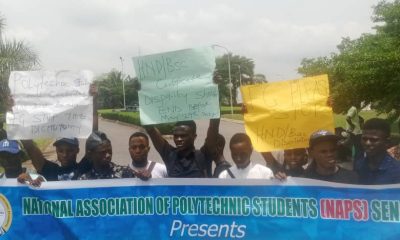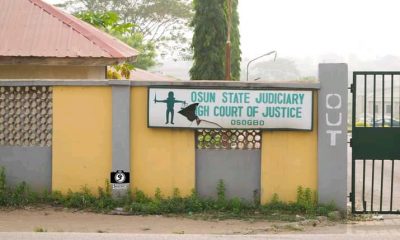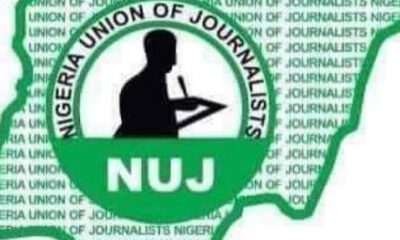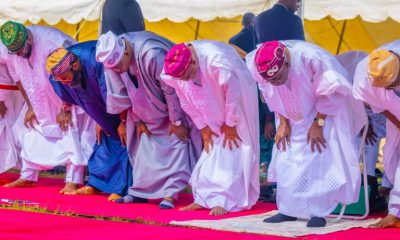Opinion
[Opinion]Tinubu: What will Be The Fate Of Democracy In Nigeria?
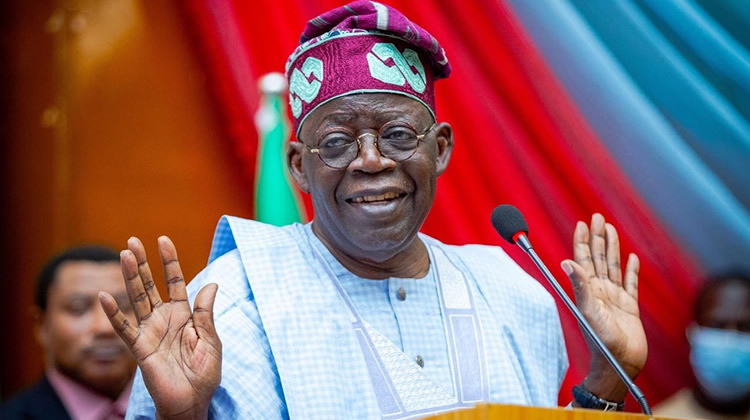
With the 2023 less than three months from now, there has been a wave of questions that agitates the minds of Nigerians. One of such is what becomes of democracy in the most populous African country in the event that Asiwaju Bola Tinubu, the candidate of the ruling All Progressives Congress (APC) win the next year’s presidential election. Americans faces similar question in the build up to the 2016 presidential election, where Donald Trump’s postures and supporters rabid behaviours raised concerns about the future of democracy in that country.
On the surface, Tinubu is at home with democracy and will work to preserve it because, as some will want to argue, was part of those who fought for its restoration in Nigeria. But further interrogation of Tinubu’s over three decades in the political space will show a pattern of intolerance to the idea of legitimate opposition and impositions, which raises concerns of authoritarian tendencies.
How valid are these concerns? In the book, ‘How Democracy Die’, Steven Levitsky and Daniel Ziblatt attempted a question of this sort by pointing out four indicators that a democracy could descend in peril. The indicators include rejection of (or weak commitment to) democratic rule of the game, denial of legitimacy of political opponents, toleration or encouragement of violence, and readiness to curtail the civil liberties of opponents, including the media.
To some extent, Tinubu ticks the boxes. Since emerging as the presidential candidate of the APC, he has not hidden his disdain for opposition parties and wouldn’t mind seeing them out of existence. In a meeting with Northern Speakers in Abuja in September this year, Tinubu made his aspiration of foisting a one-party state obvious, as he projected to “… dig their (opposition parties) graveyards and dump them there.”
This was so loud that supporters of Tinubu are already entertaining the possibility, suggesting that the victory of the APC in the presidential election may be the end of any other party even though, it may not come through the ballots. What this goes to indicate is a horrible warning of fascism because in a democracy, partisan rivalry must fully accept and respect one another’s right to exist, to compete, and to govern.
The APC and PDP and the LP and any other party for that matter may disagree sharply on the direction of the country, but they must not see each other as a threat, rather embrace their competing visions as a strength in nation-building, and accept that either of them will occasionally win elections and be able to govern. Anything outside this is not democracy but authoritarianism.
And again, the question of what becomes of the institutional safeguards meant to protect our democracy should a Tinubu presidency happen is a ragging concern. Nigeria, as we know it, is struggling with weak institutions, which has made the system of constitutional checks and balances largely ineffective. So far, there is nothing that suggests that Tinubu can resist the temptation of his leverage on some of these institutions to maximum political advantage, which effectively raises fears of him effectively manipulating them to achieve a tailored end.
One such institution is the judiciary, which many Tinubu supporters have suggested may be explored as a tool in hijacking seats in states that the APC may have failed to win in elections. Such practice may follow the pattern of the removal of former Chief Justice of Nigeria (CJN), Walter Onnoghen, by the outgoing president, or the manoeuvering that counted for the emergence of Hope Uzodinma as Imo Governor, despite finishing fourth in the poll.
Many believed that is where the outgoing Governor of Osun state, Gboyega Oyetola, draw his hope from, as he made it a habit of boasting about his return to office even when the facts showed he lost the election plain and simple. Don’t forget that Tinubu is Oyetola’s uncle, and the unmistakable impression that has so far been created is a threat to thwart a majority will. That will mean stealing elections, but through an institution, many believe should naturally block it.
If this should happen, we will not just see our democracy enter a death spiral but also see a total loss of interest in elections since it will no longer count. Every election will only amount to a mere mechanism to install cronies in positions of authority. Democracy works well when people are the ultimate decider of who leads them, not when some people abuse the power conferred on them to impose leadership.
Our democracy has gone in cycles from turbulence to distress to progress. Citizens are just beginning to have some faith in the country’s electoral process as a series of reforms are gradually yielding to the reflection of the will of the people. And improving on this should be the focus of any intending president, not trigger fears of eroding the little gains that have so far been recorded.
In short, if what inspires anyone to be president in 2023 is to undermine our democratic institutions or values, then we may have a full blown authoritarian on our hands should such person manage his way to the Aso Rock Villa. And when that happens, the efforts, sacrifices, and high hopes that went into the actualization of democracy in Nigeria will amount to nothing and it will be cruel.
This is why it is important that we have the debate on any concern about the future of democracy in Nigeria as we go into the 2023 elections, and if possible, secure a firm assurance from those with any chance of holding the keys to Aso Rock next year of sustaining it. Because if we fail to do, we may end up losing this democracy and when that happens, we will be forced to the experience of years of military rule, unless that in this case, we won’t be led into it by the barrel of guns.
• Sarafa Ibrahim is a Public Affairs Commentator and writes from Osun State. He can be reached via Twitter @SarafaNgr or email: neyoclass09@gmail.com
-
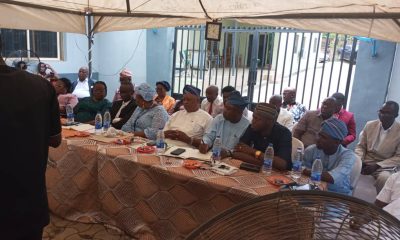
 News4 days ago
News4 days agoOsun RAAMP Opens Bid For Road Constructions Statewide
-

 News2 days ago
News2 days agoFamily Of Gruesomely Murdered Pastor Cries For Justice
-

 News3 days ago
News3 days agoCapacity Building: OHIS Organizes Retreat For New Board Members
-

 News21 hours ago
News21 hours agoJust In: Nigerian Governor Dethrones 15 Traditional Rulers, Reinstates 7


